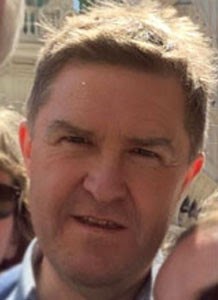
Mark Leake is a physicist by training, addressing challenging biophysical and biochemical questions in a range of biological processes. Following initial ‘natsci’ studies in the University of Cambridge, he gained his biophysics PhD on muscle proteins using optical tweezers in King’s College London, later postdoctoral positions in Oxford and Heidelberg. He gained independence as a Royal Society URF in Oxford, leading research in single-molecule biophysics, prior to becoming Anniversary Chair of Biological Physics at the University of York and Director-Founder of the Biological Physical Sciences Institute in 2013 and Coordinator of the Physics of Life Group in 2019, a biophysics collective of ~10 research teams. His research involves (i) developing new biophysical instrumentation for addressing open biological questions; (ii) coupling these to molecular biology/biochemistry to investigate single biomolecules under physiologically relevant environments. He has developed a cluster of biophysical techniques enabling imaging and manipulation of single molecules with extraordinary control. This scientific success is founded on single-molecule fluorescence microscopy with molecular and cellular manipulation and precision microfluidics technology. He is in an ideal position to step from single molecules to investigating complex processes at higher length scales of cells and tissues. His work has added insight into the behaviour of the flagellar motor of bacteria, DNA replication, repair and remodelling, protein transport, oxidative phosphorylation, and signal transduction and gene regulation, underpinned by innovative tools enabling robust quantification of molecular and cellular properties: spatiotemporal dynamics of functional molecular machines, their architectures, mechanics and functional interactions
-
DNA replication, remodelling and repair: elucidating kinetics of turnover, recruitment and assembly of replication/remodelling/repair machinery in bacteria models for those in higher organisms.
-
Signal transduction/gene regulation: using model yeast to study how chemical signals at cell membranes are converted to gene regulation in eukaryotic nuclei, and how cells retain memory through epigenetics.
-
DNA topology: investigating crucial effects of shape on roles of DNA in the cell, including its interactions with binding partners and the activity status of genes, and molecular machines that manipulate DNA shape.
-
Membrane trafficking: investigating how key biomolecules are trafficked through the cell and get deposited into membranes and ultimately recycled.
-
Biomedical physics: investigating a range of human diseases including cancer, and infection and antibiotic resistance using innovative biophysical technologies.
-
Biomolecular liquid condensates: probing a range of crucial liquid-liquid phase separation behaviour technologies in fundamental biological processes.
Leake’s work on molecular manipulation, ultrasensitive imaging and bespoke instrumentation has led to >150 articles, >15 papers cited over 100 times, several thousand cumulative citations, with a personal h-index of >40. He is an elected Fellow of the Institute of Physics, Royal Microscopical Society, and Royal Society of Biology, and an editor for Nature Publishing Group and Royal Society journals. He is sole-author of textbooks Single-molecule cellular biophysics (Cambridge University Press 2013), Biophysics: Tools & Techniques (CRC Press 2016), and Editor of Chromosome Architecture Methods in Molecular Biology, Biophysics of Infection Advances in Experimental Medicine and Biology, and Single molecule cellular biophysics in the Royal Society’s flagship biology journal Phil Trans B. His core work ethic is underpinned by a rich sense of collegiality, dedicated to the pursuit of the highest standards of scholarship, academic collaboration, and inspirational teaching, and he aims to invigorate all who study, research and work with him.
Physics of Life Group at the University of York